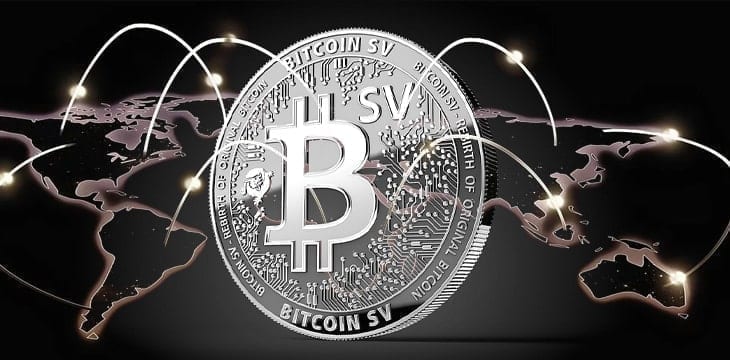MSC Adopts Wave blockchain
WAVE BL, an electronic bill of lading (eBL) solution, has been adopted by the Mediterranean Shipping Company (MSC). Following a satisfactory pilot, the development announcement allows all MSC customers to use WAVE BL. The partners have collaborated to develop a user-friendly interface that eliminates the need for shippers to change their processes.
@MSC Mediterranean Shipping Company, world’s second largest container shipper adopts Wave blockchain bills of lading🚀#Today Mediterranean Shipping Company (MSC) announced it has adopted the electronic bill of lading (eBL) solution WAVE BL.
More info✔️ https://t.co/rrcVb8ebe3 pic.twitter.com/PyNVOcR9df
— European Blockchain Convention (@EBlockchainCon) April 28, 2021
“MSC chose WAVE BL because it is the only approach that replicates the conventional paper-based method used in the shipping and cargo transportation industry,” says André Simha, MSC’s Global Chief Digital and Information Officer. “It offers a digital alternative to all of the options available with traditional print papers, but it is much quicker and more secure.”
Despite COVID-19, only 0.1 percent of bills of lading are issued electronically, according to Singapore’s Maritime and Port Authority (MPA). Since bills of lading indicate possession of the container, the sender typically sends the document to the buyer so that the container can be claimed when it arrives.
This is a challenge with the pandemic, and it’s also vulnerable to fraud because it’s paper-based. Instead, the electronic originals can be digitally encrypted and signed for electronic bills of lading, meaning that they can only be received peer-to-peer by the correct recipient.
MSC is a member of the newly formed Digital Container Shipping Association (DCSA), working on open source eBL standards. According to its report, if half of the industry adopts eBLs by 2030, it would save more than $4 billion per year. For quite some time, the container shipper has been looking into blockchain. It is a TradeLens member of IBM and Maersk. It took part in a trial using blockchain tokens for cargo release at the Port of Rotterdam last year.
This attempted to digitize the process to make it faster, more secure against fraud, and touch-free during the pandemic. Meanwhile, WAVE BL, one of the first business blockchain applications, has had a long journey.
Also, read – Crypto trading firm, Hayvn in talks for Series B funding before IPO
It was accepted into the Barclays Techstars accelerator in 2016. Israel’s ZIM containers, which began testing the solution in 2017, were among its first collaborators. Fonterra, a dairy company, collaborated with Wave and HSBC on eBLs. It also has a link to the Contour trade finance network.
Wave isn’t the only eBL option available. Bolero and essDOCS also have non-blockchain options. R3 has acquired Singapore’s E-Title Authority and is now beta testing the Corda eBL. CargoX has a blockchain solution as well.
There are several standards programs in addition to the DCSA. One from the International Port Community Systems Association (IPCSA) and another from the Interwork Alliance concentrate on tokenization. The fact that bills of lading are used in trade finance is one reason for the interest in tokenizing them. Meanwhile, the MPA in Singapore has issued a request for proposals to build eBL solutions and promote industry adoption through consortia
Stay informed with daily updates from Blockchain Magazine on Google News. Click here to follow us and mark as favorite: [Blockchain Magazine on Google News].
Get Blockchain Insights In Inbox
Stay ahead of the curve with expert analysis and market updates.
latest from tech
Disclaimer: Any post shared by a third-party agency are sponsored and Blockchain Magazine has no views on any such posts. The views and opinions expressed in this post are those of the clients and do not necessarily reflect the official policy or position of Blockchain Magazine. The information provided in this post is for informational purposes only and should not be considered as financial, investment, or professional advice. Blockchain Magazine does not endorse or promote any specific products, services, or companies mentioned in this posts. Readers are encouraged to conduct their own research and consult with a qualified professional before making any financial decisions. The featured image used is just a creative depiction of the title and it does not intend to hurt sentiments of any person or institution. If it hurts anyone sentiments, please do not hesitate to reach out to Blockchain Magazine.

 Bitcoin
Bitcoin  Ethereum
Ethereum  XRP
XRP  Tether
Tether  Solana
Solana  USDC
USDC  Dogecoin
Dogecoin  Cardano
Cardano  Lido Staked Ether
Lido Staked Ether  TRON
TRON  Wrapped Bitcoin
Wrapped Bitcoin  Wrapped stETH
Wrapped stETH  Chainlink
Chainlink  Avalanche
Avalanche  Sui
Sui  Stellar
Stellar  Litecoin
Litecoin  Toncoin
Toncoin  Shiba Inu
Shiba Inu  Hedera
Hedera  LEO Token
LEO Token  MANTRA
MANTRA  USDS
USDS  Hyperliquid
Hyperliquid  Polkadot
Polkadot  WETH
WETH  Bitcoin Cash
Bitcoin Cash  Bitget Token
Bitget Token  Ethena USDe
Ethena USDe  Wrapped eETH
Wrapped eETH  Uniswap
Uniswap  Monero
Monero  NEAR Protocol
NEAR Protocol  Pepe
Pepe  WhiteBIT Coin
WhiteBIT Coin  Aave
Aave  Bittensor
Bittensor  Ondo
Ondo  Aptos
Aptos  Internet Computer
Internet Computer  Dai
Dai  Official Trump
Official Trump  Ethereum Classic
Ethereum Classic  Mantle
Mantle  Tokenize Xchange
Tokenize Xchange  Gate
Gate  OKB
OKB  sUSDS
sUSDS  Coinbase Wrapped BTC
Coinbase Wrapped BTC 




